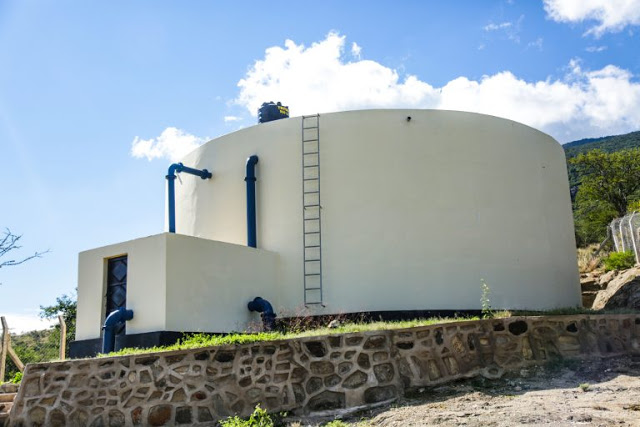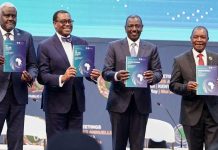Residents of many areas of the famous tourist hub enjoy supply of enough clean and safe water as well as disposal of wastewater in a mega project that cost 530bn/-started about two years immediately, President John Magufuli ascended to power.
It was in fulfillment of his promise he made to the nationals in 2015 during the campaign, and when inaugurating the 11th Parliament late in the same year.
It was also in line with the Chama Cha Mapinduzi (CCM) Election Manifesto 2015-2020.
In the wake, President Magufuli told the House in his inaugural speech that there were complaints in the water sector and solutions were looming.
He said that during his campaign he received such complaints and that his new administration would increase availability and accessibility to water to 85 percent in rural areas and 95 per cent by this year, a promise that has been fulfilled.
“We will complete the projects that are ongoing and start new ones- big and small from rivers, lakes and other reliable sources, including harvesting rainwater.
Let us relieve women from carrying water buckets. We know that poverty cannot end in the country if the citizens have no clean water,” said the President, while addressing the August House on 20th November 2015.
In fulfillment of the promise, the Minister for Water, Professor Makame Mbarawa signed contracts for the projects in the city in 2018, pointing out that the government was determined to end challenges related to availability of clean water and disposal of wastewater in Arusha.
In the course, the African Development Bank (AfDB) and the Tanzania Government released the 530bn/- for drinking water and sanitation in the city of Arusha.
The money has been used mainly for transport and pipeline infrastructure in a project that has been carried out by Beijing Enterprises Holdings Limited of China.
“A total of 530bn/- will be spent to address water challenges in Arusha,” the minister said, while touring the city that has nearly two million residents.
The money was made available to the Arusha Urban Water Supply and Sanitation Authority (AUWSA).
The then AUWSA Director, Ms Luth Koya announced that drinking water and sanitation project would connect 4,500 families to water distribution points, and to achieve that, at least 220 km of pipeline would be installed. The project covered 4,024 holes.
President Magufuli laid foundation stone for the project in December 2018 that has since seen construction of 56 wells that can produce 2 million litres of water per day to the city residents and surrounding areas.
He laid the foundation stone at one of the deepest wells at Kimnyaki village, signaling an end to water woes in Arusha city that requires 940,000 litres per day, in an event that was attended by several ministers, including Professor Mbarawa, the then Arusha Regional Commissioner (RC), Mr Mrisho Gambo and other officials.
The Beijing construction firm’s Mr Cheng Longhai, said they would complete the project within 18 months, something that has been realised.
The city has a high rise in population that shot up from around 250,000 less than a decade ago; Meaning that demand for the precious liquid has gone up.
Arusha’s main sources of water are rivers and springs, around Mount Meru and underground water.
CCM Election Manifesto, provided that its government would address several challenges in the water sector by implementing water projects in urban and rural areas, to ensure more people have access of clean water in accordance to the millennium goals.
It targeted that 43,285,159 people would be getting the best services by this year, up from 20,022,283 that were getting it in 2015.
The manifesto says there would be built water pools to harvest rainwater in several regions including Arusha and construct water laboratories to ensure them quality water.
As for sewage services, the manifesto outlines that the government would upsurge the pace in construction of wastewater infrastructure and enable the private sector to offer services along with the government.







